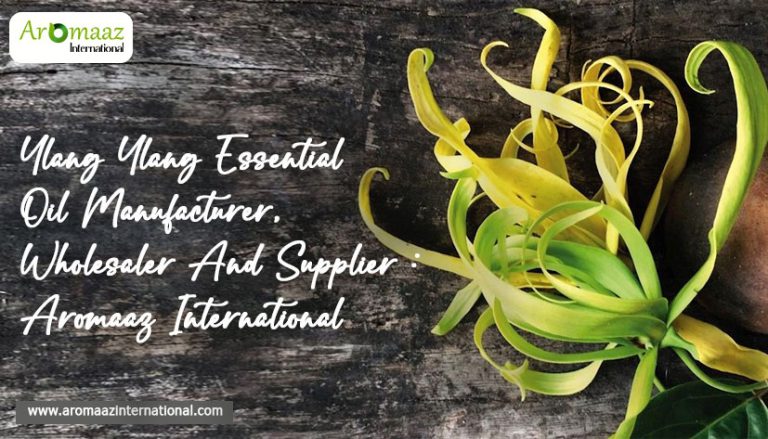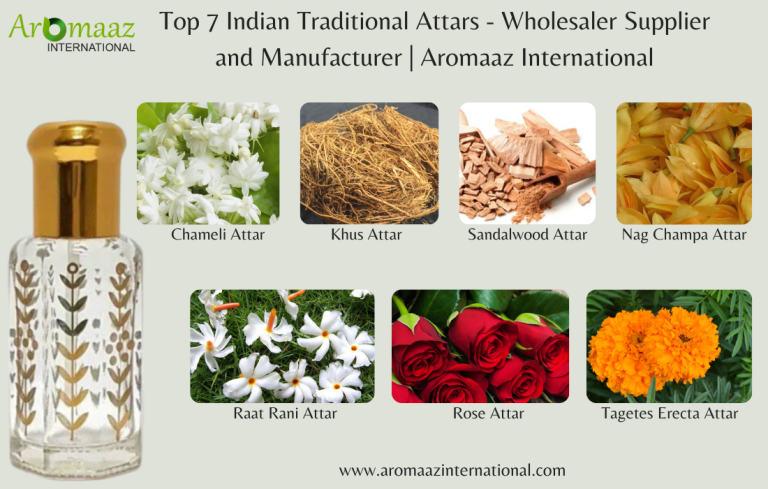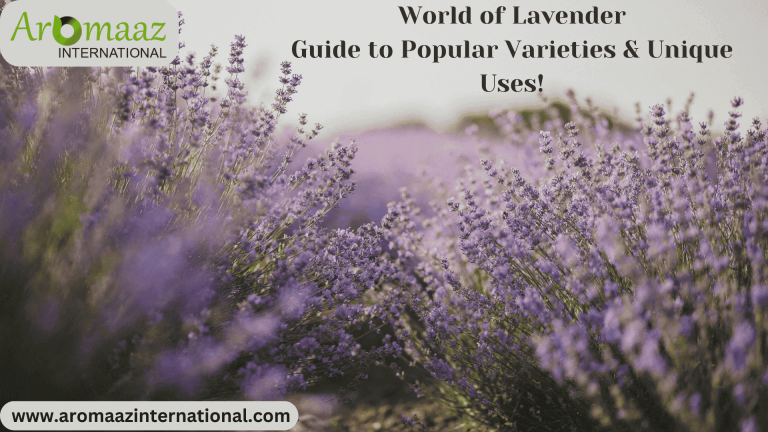Table Content
| 1. | Introduction: |
| 2. | Why Use Essential Oils for Soap Making? |
| 3. | Best Essential Oils for Soap Making: – |
| 4. | Where to Buy Quality Essential Oils for soap making? |
| 5. | Safety Tips for Using Essential Oils for Soap Making |
| 8. | Conclusion: – |
Introduction: –
Soap making is an art and adding high quality essential oils takes it to the next level. Essential oils used in soap making not only add fragrance but also have benefits for our skin. Choosing the right oils ensures a balanced aroma, therapeutic effects, and longevity in scent. In this blog, we’ll explore 10 best essential oils for soap making, how to blend them, and their benefits also.
Why Use Essential Oils for Soap Making?
Using essential oils in soap making offers natural fragrance, potential skin benefits, and a gentler alternative to synthetic scents, making it a good choice for those seeking natural and soothing soap. The key reason for using essential oils for soap making are: –
-
Natural Aromas – Pure essential oils offer a fresh and long lasting scent. Some essential oils, like rosemary, have a strong scent that can linger on the soap for a long time. A wide variety of essential oils are available, allowing for diverse and unique soap scents, from floral to herbal to citrusy.
-
Skin Benefits – Many essential oils have antibacterial and calming properties, it helps to moisturise skin.
-
No Synthetic Chemicals – A safer option compared to synthetic fragrances.
Best Essential Oils for Soap Making: –
Using essential oils for soap making ensures a natural aroma, therapeutic benefits, and a luxurious experience. Choosing the best essential oils for soap helps maintain skin balance, enhances longevity, and provides a delightful scent. Below are the top 10 essential oils for soap making, along with their benefits, usage, and DIY recipes explained.
Lavender Essential Oil for Soap Making: –
Lavender essential oil is one of the most popular choices for soap making in the market due to its calming aroma and skin-calming properties. It helps reduce irritation, dryness, and redness, making it perfect for gentle skincare. The floral, herbal scent of lavender oil blends well with citrus, woody, and other floral oils, creating refreshing and versatile soap fragrances.
Benefits of Using Lavender Essential Oil in Soap: –
-
It calms and nourishes the skin.
-
It Helps with minor skin irritations and dryness.
-
Lavender Essential Oil in Soap making Provides a calming, relaxing aroma.
-
It Blends well with citrus, floral, and herbal oils.
How to Use Lavender Essential Oil in Soap Making?
To use lavender oil for soap making, Add 10-20 drops per 100g of soap base. And now, Mix it thoroughly to ensure even distribution of the scent.
Best Lavender Essential Oil Types for Soap Making: –
-
Lavandula angustifolia (True Lavender) – It is Best for skin care due to its mild and soothing properties.
-
Lavandin – Its Stronger scent is great for aromatherapy and refreshing soaps.
DIY Lavender Soap Recipe easy steps: –
-
Melt 500g soap base.
-
Add 15 drops of lavender essential oil.
-
Mix well and pour into molds.
-
Let it set for a few hours before use.
Common Mistakes to Avoid: –
-
Don’t add too much oil (can cause skin irritation).
-
Don’t Mix oil at high temperatures (reduces its benefits).
-
Not blending well (causes uneven scent distribution).
Tea Tree Essential Oil for Soap Making: –
Tea tree essential oil is popular for its antibacterial and antifungal properties, making it ideal for skincare. It is especially beneficial for acne-prone or sensitive skin and adds a fresh, medicinal scent to handmade soaps.
Benefits of Using Tea Tree Essential Oil in Soap:
-
It Helps fight acne and skin infections.
-
Offers antifungal and antibacterial protection.
-
It Provides a clean, refreshing scent.
-
This essential oil is Ideal for oily and combination skin types.
How to Use Tea Tree Essential Oil in Soap Making?
To use Tea tree oil in soap making, Use 10-15 drops per 100g of soap base to get a balanced fragrance and therapeutic benefits. Avoid using too much, as its strong scent can overpower other fragrances.
Best Tea Tree Essential Oil Types for Soap Making:
-
Melaleuca alternifolia – Standard tea tree oil with excellent antibacterial properties.
DIY Tea Tree Soap Recipe: –
-
Melt 500g soap base.
-
Add 12 drops of tea tree essential oil.
-
Stir well and pour into molds.
-
Allow it to cool and harden before use.
Common Mistakes to Avoid: –
-
Overpowering the soap with too much oil.
-
Adding at high temperatures (may weaken its properties).
-
Not mixing properly, leading to uneven fragrance.
Peppermint Essential Oil for Soap Making: –
Peppermint essential oil provides a cooling effect and an invigorating, minty aroma. It is refreshing and works well in summer soaps.
Benefits of Using Peppermint Essential Oil in Soap: –
-
It calms irritated skin and provides a cooling sensation.
-
Refreshes and energizes with its crisp scent.
-
It Helps relieve itchiness and inflammation.
How to Use Peppermint Essential Oil in Soap Making?
Use 8-12 drops per 100g of soap base. Peppermint oil is potent, so a little goes a long way.
DIY Peppermint Soap Recipe: –
-
It Melt 500g soap base.
-
Add 10 drops of peppermint essential oil.
-
Mix and pour into molds.
-
Let set before using.
Common Mistakes to Avoid: –
-
Using too much, which can cause skin irritation.
-
Not blending properly, leading to uneven cooling effects.
Lemon Essential Oil for Soap Making: –
Lemon essential oil has a fresh, citrusy scent that uplifts mood and energizes. It adds a bright, clean aroma to soaps.
Benefits of Using Lemon Essential Oil in Soap: –
-
Brightens and refreshes skin.
-
Uplifts mood with its citrus fragrance.
-
Acts as a natural antibacterial agent.
How to Use Lemon Essential Oil in Soap Making?
Use 10-15 drops per 100g of soap base to ensure a balanced fragrance.
DIY Lemon Soap Recipe: –
-
Melt 500g soap base.
-
Add 12 drops of lemon essential oil.
-
Stir well and pour into molds.
-
Let set before use.
Common Mistakes to Avoid: –
-
Not using enough, as citrus scents fade quickly.
-
Exposing the soap to direct sunlight, weakens the fragrance.
Rosemary Essential Oil for Soap Making: –
Rosemary essential oil has a fresh, herbal scent that promotes relaxation and mental clarity. It adds a crisp, invigorating aroma to soaps.
Benefits of Using Rosemary Essential Oil in Soap: –
-
Helps refresh and tone the skin.
-
Promotes relaxation and mental clarity.
-
Has natural antibacterial properties.
How to Use Rosemary Essential Oil in Soap Making?
Use 10-15 drops per 100g of soap base for a balanced herbal fragrance.
DIY Rosemary Soap Recipe: –
-
Melt 500g soap base.
-
Add 12 drops of rosemary essential oil.
-
Stir well and pour into molds.
-
Let set before use.
Common Mistakes to Avoid: –
-
Adding too much, as rosemary has a strong scent.
-
Not storing the soap in a cool, dry place.
Eucalyptus Essential Oil for Soap Making: –
Eucalyptus essential oil has a cooling, minty aroma that helps clear sinuses and refreshes the skin.
Benefits of Using Eucalyptus Essential Oil in Soap: –
-
Provides a refreshing and cooling sensation.
-
Helps open airways and ease congestion.
-
Has natural antibacterial and antifungal properties.
How to Use Eucalyptus Essential Oil in Soap Making?
Use 8-12 drops per 100g of soap base for a refreshing effect.
DIY Eucalyptus Soap Recipe: –
-
Melt 500g soap base.
-
Add 10 drops of eucalyptus essential oil.
-
Stir well and pour into molds.
-
Let set before use.
Common Mistakes to Avoid: –
-
Using too much, as eucalyptus has a strong scent.
-
Not blending it well, which can cause uneven fragrance distribution.
Orange Essential Oil for Soap Making: –
Orange essential oil has a sweet, citrusy scent that uplifts mood and adds a cheerful touch to soaps.
Benefits of Using Orange Essential Oil in Soap: –
-
Brightens and softens the skin.
-
Boosts mood with its sweet citrus aroma.
-
Acts as a natural antibacterial agent.
How to Use Orange Essential Oil in Soap Making?
Use 10-15 drops per 100g of soap base for a balanced fragrance.
DIY Orange Soap Recipe: –
-
Melt 500g soap base.
-
Add 12 drops of orange essential oil.
-
Stir well and pour into molds.
-
Let set before use.
Common Mistakes to Avoid: –
-
Not using enough, as citrus scents fade quickly.
-
Exposing the soap to direct sunlight, weakens the fragrance.
Patchouli Essential Oil for Soap Making: –
Patchouli essential oil has a deep, earthy aroma that promotes relaxation and soothes the skin.
Benefits of Using Patchouli Essential Oil in Soap: –
-
Helps with dry and irritated skin.
-
Has a grounding and calming scent.
-
Acts as a natural deodorizer.
How to Use Patchouli Essential Oil in Soap Making?
Use 6-10 drops per 100g of soap base for a warm, earthy fragrance.
DIY Patchouli Soap Recipe: –
-
Melt 500g soap base.
-
Add 8 drops of patchouli essential oil.
-
Stir well and pour into molds.
-
Let set before use.
Common Mistakes to Avoid: –
-
Using too much, as patchouli has a very strong aroma.
-
Not blend it well with other essential oils for a balanced scent.
Bergamot Essential Oil for Soap Making: –
Bergamot essential oil has a light, citrusy fragrance with floral notes that uplift mood and refresh the skin.
Benefits of Using Bergamot Essential Oil in Soap: –
-
Helps cleanse and balance oily skin.
-
Has a calming and uplifting aroma.
-
Acts as a natural antibacterial agent.
How to Use these Essential Oils for Soap Making?
Use 10-15 drops per 100g of soap base for a balanced fragrance.
DIY Bergamot Soap Recipe: –
-
Melt 500g soap base.
-
Add 12 drops of bergamot essential oil.
-
Stir well and pour into molds.
-
Let set before use.
Common Mistakes to Avoid: –
-
Using bergamot essential oil that contains bergapten, can cause sun sensitivity.
-
Not storing in a cool, dark place to preserve the scent.
Cedarwood Essential Oil for Soap Making: –
Cedarwood essential oil has a warm, woody scent that provides a grounding and soothing effect.
Benefits of Using Cedarwood Essential Oil in Soap: –
-
Helps soothe irritated skin.
-
Has a calming and earthy aroma.
-
Acts as a natural insect repellent.
How to Use Cedarwood Essential Oil for Soap Making?
Use 8-12 drops per 100g of soap base for a deep, woody fragrance.
DIY Cedarwood Soap Recipe: –
-
Melt 500g soap base.
-
Add 10 drops of cedarwood essential oil.
-
Stir well and pour into molds.
-
Let set before use.
Common Mistakes to Avoid: –
-
Using too much, as the scent can be overpowering.
-
Not blending it with other complementary scents for a well-rounded fragrance.
How to Blend Essential Oils for Soap Making?
Blending essential oils for soap making ensures a well-rounded aroma. Here are some tried-and-tested blends:
-
Floral Bliss: Lavender + Geranium + Bergamot
-
Citrus Energy: Orange + Lemon + Peppermint
-
Herbal Calm: Rosemary + Tea Tree + Lavender
-
Earthy Warmth: Patchouli + Cedarwood + Orange
-
Fresh & Clean: Lemon + Eucalyptus + Peppermint
How to Use Essential Oils for Soap Making?
Knowing when and how to add essential oils for soap making is crucial:
-
Cold Process Soap: Add oils after the trace stage for maximum retention.
-
Hot Process Soap: Mix oils after the cooking phase to preserve their benefits.
-
Melt and Pour Soap: Stir in oils after melting the base.
How Much Essential Oil to Use for Soap Making?
Using the correct amount of essential oils for soap making prevents skin irritation and ensures lasting fragrance. Here’s a general guideline:
-
0.5 – 1 ounce per pound of soap
-
Use a blend for balanced scent longevity
-
Store properly to prevent oxidation
How to Make Essential Oils Last Longer in Soap?
Essential oils can fade if not used correctly. Here are some tips to maintain fragrance:
-
Use fixative oils like patchouli or cedarwood.
-
Store soaps in airtight containers to preserve scent.
-
Cure cold process soap properly to stabilize the fragrance.
Where to Buy Quality Essential Oils for soap making?
When making soap, high-quality essential oils enhance both fragrance and skin benefits, making the final product more effective and enjoyable to use. Many suppliers offer essential oils, but it’s important to choose one that provides pure and natural options without synthetic additives. Popular brands like Natures Natural India, Aromaaz International, and Aarnva Global Exports are recognized for their quality, but what truly matters is ensuring the oils you select are safe, authentic, and suitable for skin care. Checking for certifications, purity tests, and customer reviews can help you make an informed choice.
Safety Tips for Using Essential Oils for Soap Making: –
-
Dilution is key – Never use undiluted essential oils directly on the skin.
-
Patch test before use – Some oils can be irritating.
-
Store in dark glass bottles to prevent oxidation.
-
Avoid certain oils for sensitive skin – Cinnamon, clove, and some citrus oils can irritate.
Conclusion: –
Essential oils for soap making add natural fragrances and skin-friendly benefits. Whether you love lavender’s calm, citrus’s freshness, or cedarwood’s warmth, there’s an essential oil for every soap recipe. The right blend enhances fragrance, ensures long-lasting freshness, and keeps your soap free from synthetic chemicals. Store soaps properly and use fixative oils like patchouli for better scent retention. For high-quality essential oils for soap making, brands like Natures Natural India, Aromaaz International, and Aarnva Global Exports offer great options. Start experimenting and create your own unique, skin-loving soaps. Happy soap-making!



